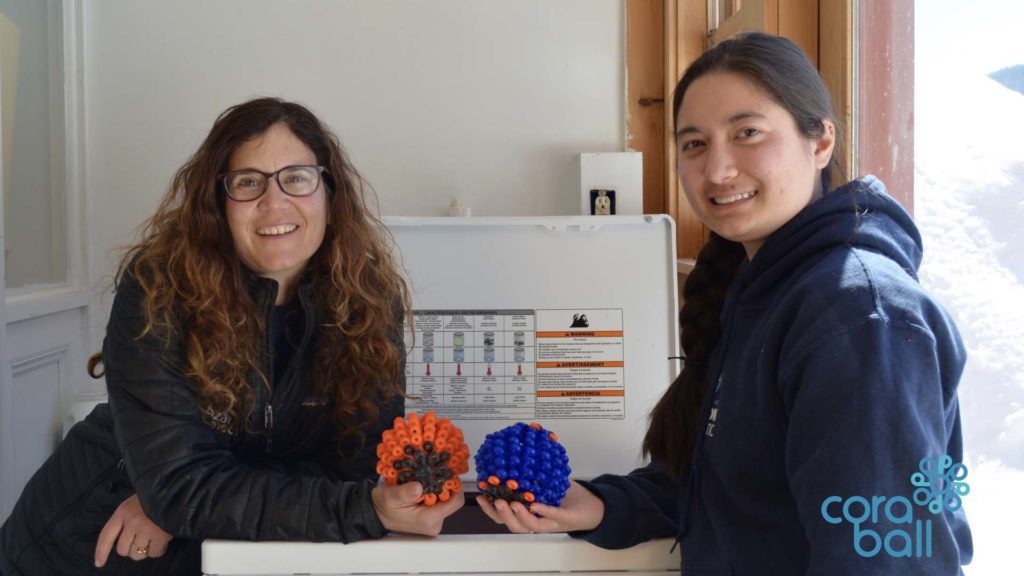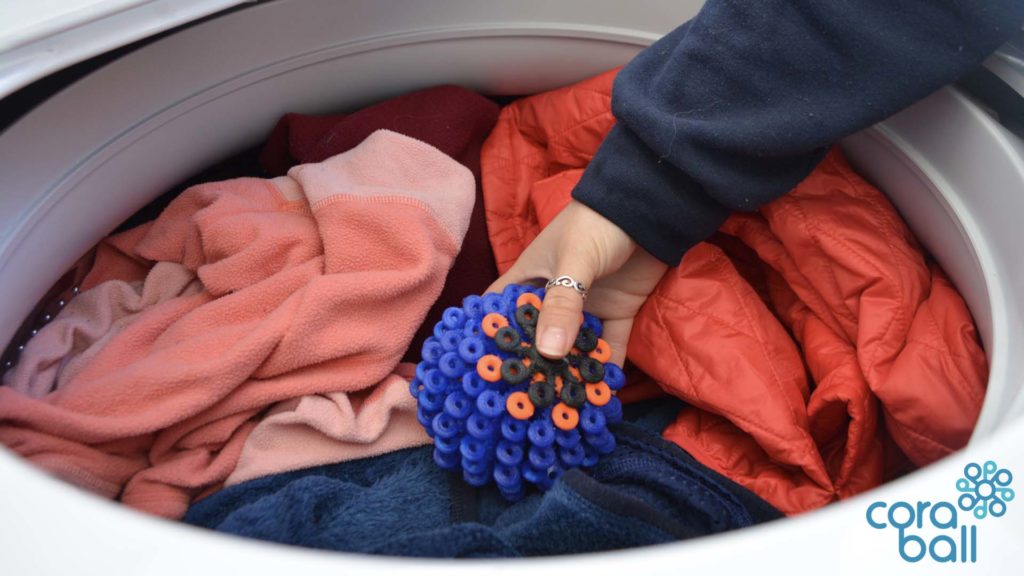Ask a person what chores they dread doing, and one of the first to top their list will surely be laundry. A former Seattle University student has created a device intended to simultaneously improve the environment and wash your socks.
Brooke Winslow, who graduated from Seattle U in 2015, has helped create the Cora Ball, a spherical, tentacled device with a lofty goal. It is designed to trap plastic particles and micro fibers that normally shed from clothes in the wash, thus preventing those fibers from draining out into the ocean.
The Rozalia Project, which created the Cora Ball, began in 2010. Its founders, Rachael Miller and husband James, declared their mission to clean and protect the ocean through cleanup, education, innovation and solutions-based research.
When Winslow graduated from Seattle U two years ago, she immediately started working for the Rozalia Project. She had interned with the project during her first two years of college at MIT.
The inspiration for the Cora Ball came to Winslow as she noticed sandburs attached to her two Newfoundland dogs after they had been romping around outside. She noticed that sandburs were a natural way to capture debris. Further inspiration came to the team as they observed coral and its natural ability to capture particles from the water; the water is able to flow through the coral’s large surface area while simultaneously trapping particles.
Winslow then modeled the Cora Ball on the computer, utilizing a 3D printer to create an initial prototype. After several adjustments were made to the design, a final model was created and a kickstarter campaign was made this year. The kickstarter was wildly successful and the fundraising goal of $10,000 was reached within three hours. Since then, even more has been raised.
“There are three benefits of a big kickstart,” Winslow said. “First, there will be more impact for a clean ocean. Second, it demonstrates that people care and will show support for a solution to the ocean plastic problem. And finally, a big kickstart will allow us to transition from making the Cora Ball at the kitchen table to production on a larger scale and therefore wider distribution and a bigger impact on the ocean.”
Ocean pollution from plastic and microfibers is still being researched, and products like the Cora Ball are attempting to address it. The driving idea is that every time clothes are washed, fibers break free and end up in the ocean.
According to the Rozalia Project, a single fleece jacket can shed as many as 250,000 fibers per wash. These fibers are often made up of plastic particles and toxic non-plastic substances. The effects of these microfibers are still being speculated. Previously, nets used to collect ocean plastic have been too big to collect the tiny fibers. The small size of the fibers makes them difficult to capture and observe.
The Rozalia Project website asserts that microfibers pose a major threat to ocean life, humans and other land creatures citing microfibers as being the single biggest pollution problem facing our oceans. The fibers then enter the human food chain when we consume the sea life that has been exposed to the fibers.
A study in California showed that 67 percent of tested species in markets contained fibers. Even if someone does not directly consume fish, the microfibers can still enter their diet after fish meal is fed to cows, pigs and chicken.
There are no filter technologies that stop microfiber pollution, according to Winslow. The Cora Ball is the first device to tackle this recent conceivable threat to ecosystems in the ocean and throughout the world.
“We think of this as a way for people tomakeasmallefforttocauseabig impact,” Miller said. If 10 percent of U.S. households used a Cora
Ball, the Rozalia Project says that the equivalent of 30 million water bottles per year would be kept out of the ocean.
The Cora Ball, made of soft and flexible plastic, can be pulled apart and is easily cleaned. Its arms have bumps and ridges that catch the fibers.
“Cleaning a Cora Ball is no harder than cleaning a hairbrush,” Winslow said. The team members of the Rozalia Project are now working on manufacturing.
“Production of the Cora Ball will start soon. We are working with local manufacturers to create a sustainable and localized chain of production,” Brooke said. The product is expected to be delivered to those who have ordered it by July of this year.
More information about the Cora Ball and a link to the kickstarter can be found at rozaliaproject.org.
Bailee may be reached at
bclark@su-spectator.com










